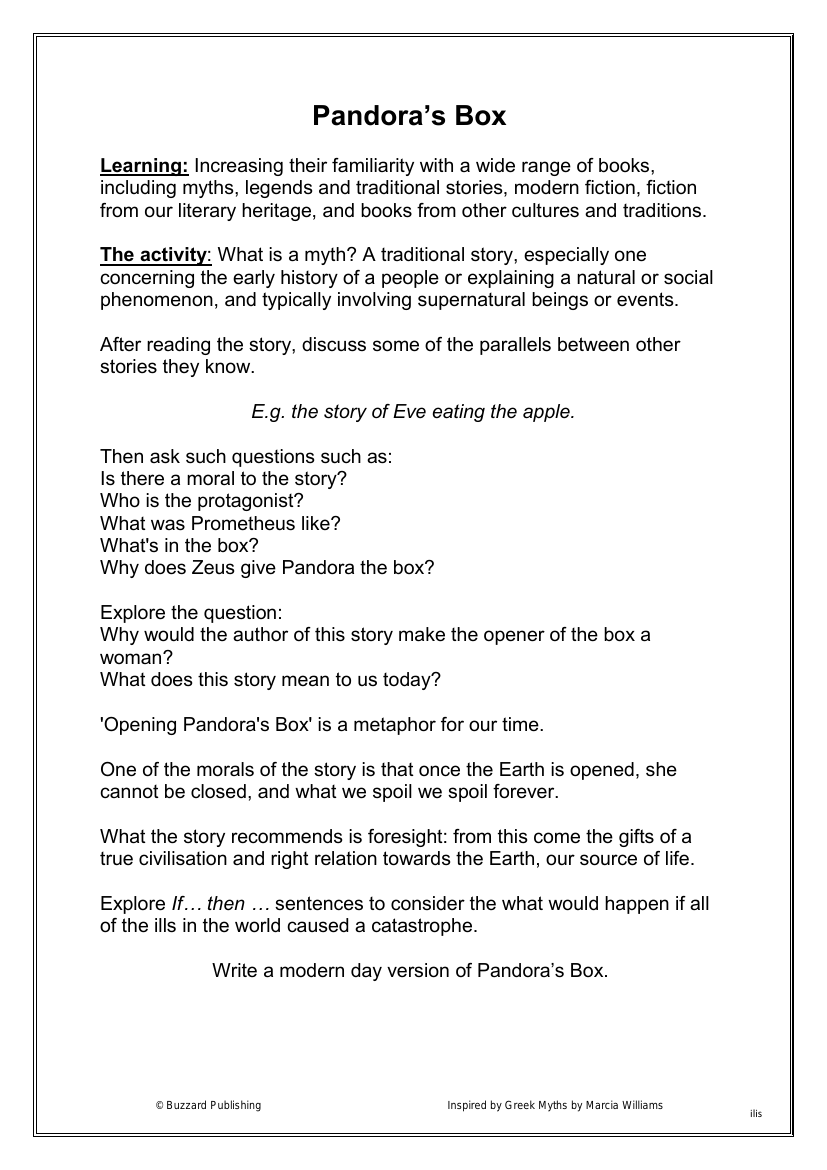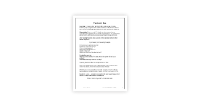Inspired by: Greek Myths - Week 2

English Resource Description
In a series of learning activities inspired by Greek myths, students are invited to delve into the rich world of traditional storytelling and its relevance to contemporary life. The unit begins with an exploration of 'Pandora's Box', a myth that serves as a cautionary tale about curiosity and unintended consequences. Students are encouraged to increase their familiarity with a broad spectrum of literature, from ancient myths to modern fiction, and to draw parallels between the story of Pandora and other narratives they know, such as the biblical account of Eve and the apple. Critical thinking is fostered through questions about the moral of the story, the characters involved, and the significance of the box's contents. The lesson also prompts a discussion on gender roles within mythology and the metaphorical meaning of 'opening Pandora's Box' in today's context, emphasizing the importance of foresight and environmental stewardship.
Complementing the mythological study, students examine the power of language and proverbs, discussing the phrase 'curiosity killed the cat' and other common sayings that impart wisdom or caution. They evaluate the use of language in Marcia Williams' retelling of the myth, focusing on the impact of figurative language such as similes and metaphors. For instance, the evils escaping from Pandora's Box are likened to a 'swarm of insects', and students are tasked with exploring alternative imagery to convey the same idea. The theme of hope, as the one positive element to emerge from the box, is further explored through the reading and analysis of Emily Dickinson's poem 'Hope is the thing with feathers'. Students are encouraged to interpret the metaphor of hope as a bird, discuss the poem's vocabulary and imagery, and ultimately, create their own poems about hope, reflecting on its enduring presence even in the most challenging times.
